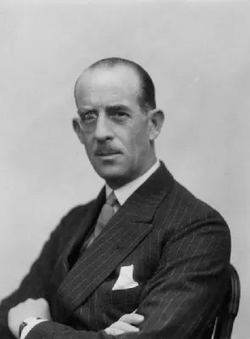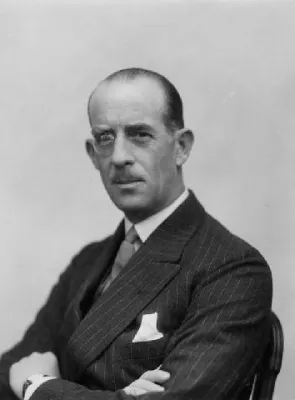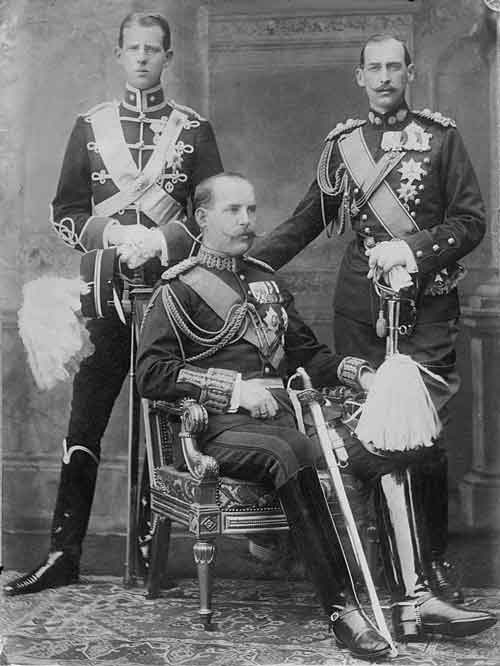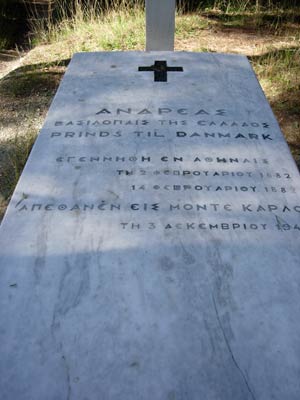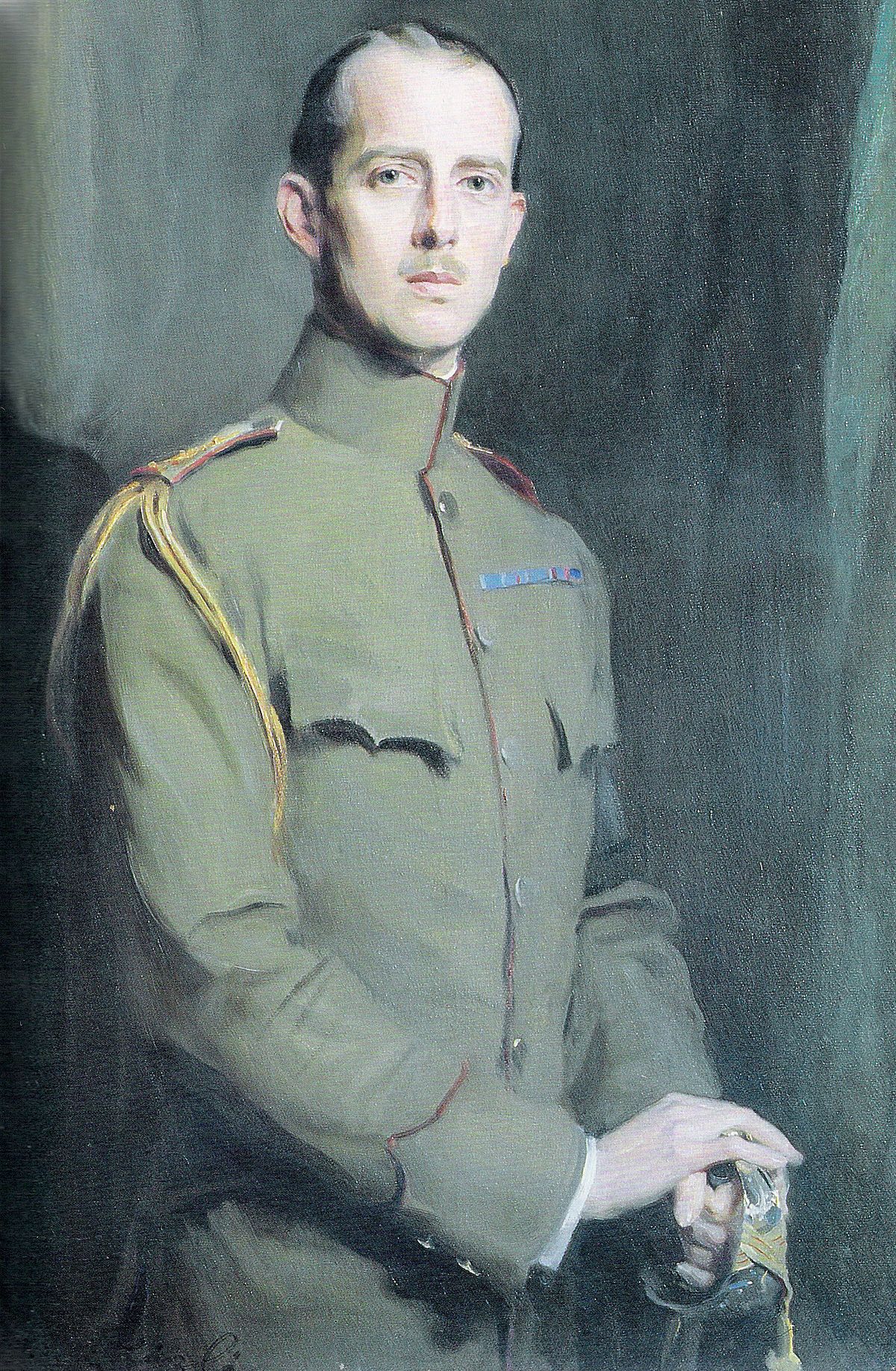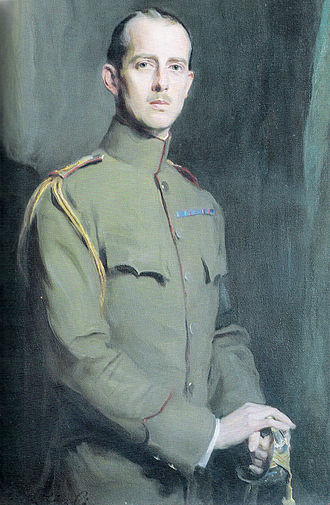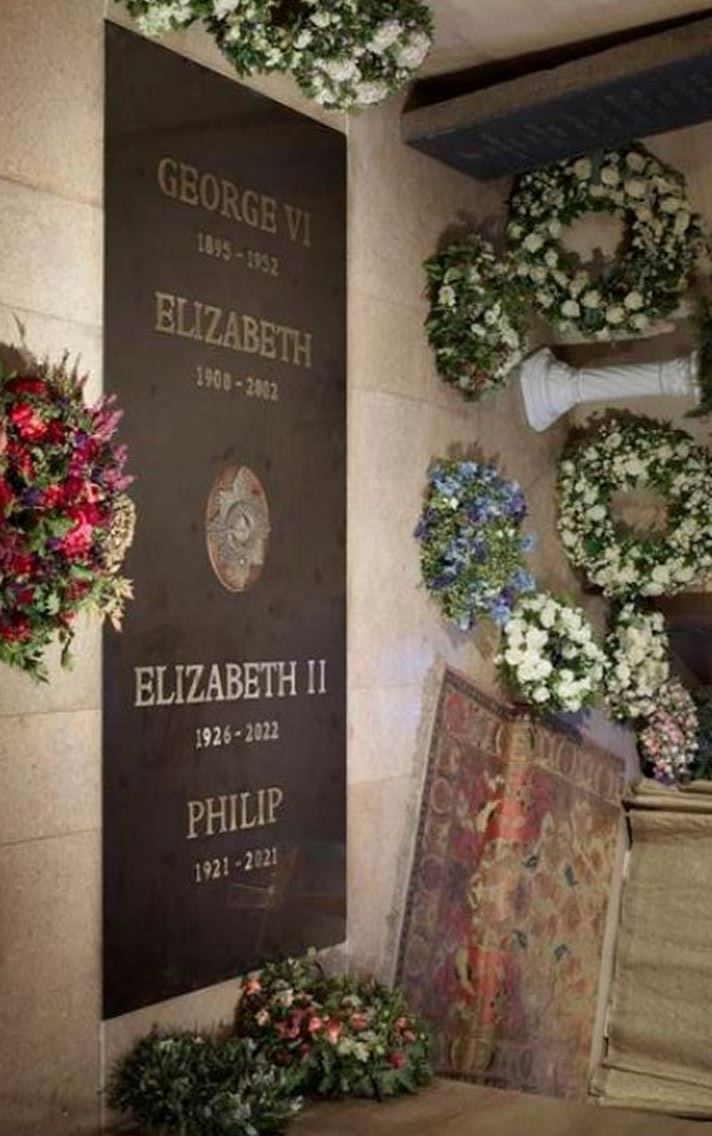In 1902, Prince Andrew met Princess Alice of Battenberg at the coronation of her great-uncle and his distant cousin, King Edward VII, in London. Princess Alice was one of two daughters of Prince Louis of Battenberg and Princess Victoria of Hesse and by Rhine. Alice's maternal great grandmother was Queen Victoria of Great Britain. Andrew and Alice fell in love and were married on 6 October 1903 in a civil wedding at Darmstadt. The following day two religious wedding services were performed: one Lutheran in the Evangelical Castle Church, and another Greek Orthodox in the Russian Chapel on the Mathildenhöhe.
Prince and Princess Andrew had five children, all of whom later had children of their own: Margherita, HRH, Princess of Hohenlohe-Langenburg; Theodora, HRH Margravine of Baden; Cecilie, HRH Grand Duchess of Hesse and by Rhine; Sophie, HRH Princess of Hesse and Hanover; and Philip, HRH Duke of Edinburgh.
Andrew began military training at an early age, and was commissioned as an officer in the Greek army. His command positions were real appointments rather than honorary, and he saw service in the Balkan Wars. In 1913, his father was assassinated and Andrew's elder brother, Constantine, became king. Dissatisfaction with his brother's neutrality policy during World War I led to his brother's abdication and most of the royal family, including Andrew, was exiled. On their return to Greece a few years later, Andrew saw service in the Greco-Turkish War (1919–1922), but the war went badly for Greece, and Andrew was blamed, in part, for the loss of Greek territory. He was exiled for a second time in 1922, and spent most of the rest of his life in France.
By 1930, he was estranged from his wife, Princess Alice of Battenberg, who had a mental breakdown and was hospitalized for several years. His son, Prince Philip, served in the British Royal Navy during World War II, while his daughters were married to German noblemen, three of them with Nazi connections. Separated from his wife and son by the effects of the war, Andrew died in Monte Carlo in 1944. He had seen neither of them since 1939. Andrew was at first buried in the Russian Orthodox church in Nice but, in 1946 his remains were transferred, by Greek cruiser, to the royal cemetery at Tatoi Palace, near Athens, Greece.
In 1947, Andrew's son Philip married Princess Elizabeth of Great Britain, currently Queen Elizabeth II. They have four children and eight grandchildren. Their son Andrew is named after his grandfather. Andrew's estranged wife, Princess Alice, entered a life of religious service and died in 1969 in London, England.
In 1902, Prince Andrew met Princess Alice of Battenberg at the coronation of her great-uncle and his distant cousin, King Edward VII, in London. Princess Alice was one of two daughters of Prince Louis of Battenberg and Princess Victoria of Hesse and by Rhine. Alice's maternal great grandmother was Queen Victoria of Great Britain. Andrew and Alice fell in love and were married on 6 October 1903 in a civil wedding at Darmstadt. The following day two religious wedding services were performed: one Lutheran in the Evangelical Castle Church, and another Greek Orthodox in the Russian Chapel on the Mathildenhöhe.
Prince and Princess Andrew had five children, all of whom later had children of their own: Margherita, HRH, Princess of Hohenlohe-Langenburg; Theodora, HRH Margravine of Baden; Cecilie, HRH Grand Duchess of Hesse and by Rhine; Sophie, HRH Princess of Hesse and Hanover; and Philip, HRH Duke of Edinburgh.
Andrew began military training at an early age, and was commissioned as an officer in the Greek army. His command positions were real appointments rather than honorary, and he saw service in the Balkan Wars. In 1913, his father was assassinated and Andrew's elder brother, Constantine, became king. Dissatisfaction with his brother's neutrality policy during World War I led to his brother's abdication and most of the royal family, including Andrew, was exiled. On their return to Greece a few years later, Andrew saw service in the Greco-Turkish War (1919–1922), but the war went badly for Greece, and Andrew was blamed, in part, for the loss of Greek territory. He was exiled for a second time in 1922, and spent most of the rest of his life in France.
By 1930, he was estranged from his wife, Princess Alice of Battenberg, who had a mental breakdown and was hospitalized for several years. His son, Prince Philip, served in the British Royal Navy during World War II, while his daughters were married to German noblemen, three of them with Nazi connections. Separated from his wife and son by the effects of the war, Andrew died in Monte Carlo in 1944. He had seen neither of them since 1939. Andrew was at first buried in the Russian Orthodox church in Nice but, in 1946 his remains were transferred, by Greek cruiser, to the royal cemetery at Tatoi Palace, near Athens, Greece.
In 1947, Andrew's son Philip married Princess Elizabeth of Great Britain, currently Queen Elizabeth II. They have four children and eight grandchildren. Their son Andrew is named after his grandfather. Andrew's estranged wife, Princess Alice, entered a life of religious service and died in 1969 in London, England.
Family Members
-
![]()
Constantine Oldenburg I
1868–1923
-
![]()
Giorgios Oldenburg
1869–1957
-
![]()
Alexandra Georgievna Глюксбург Romanova
1870–1891
-
![]()
Grand Duchess Alexandra Georgievna "Aline" Oldenburg Romanova
1870–1891
-
![]()
Nikolaos Oldenburg
1872–1938
-
![]()
Maria Georgievna - Princess of Greece and Denmark
1876–1940
-
![]()
Olga - Princess of Greece and Denmark
1880–1880
-
![]()
Christoffel "Christo" Oldenburg
1888–1940
-
![]()
Fürstin Margarita von Schleswig-Holstein-Sonderburg-Glücksburg zu Hohenlohe-Langenburg
1905–1981
-
![]()
Theodora Princess of Greece and Denmark
1906–1969
-
![]()
Prinzessin Cecilie von Schleswig-Holstein-Sonderburg-Glücksburg von Hesse-Darmstadt
1911–1937
-
![]()
Princess Sophie of Greece and Denmark
1914–2001
-
![]()
Prince Philip Mountbatten
1921–2021
